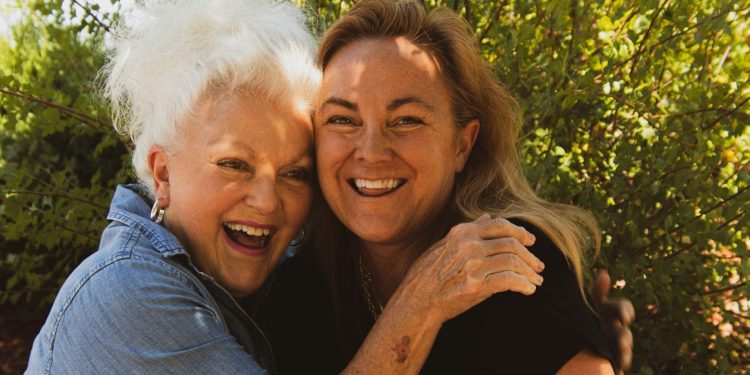Age-related changes in life, health issues, and social circumstances frequently cause older persons to feel more stressed and anxious. But in older age, sustaining general well-being and quality of life depends on controlling stress and anxiety. Let’s explore the risks associated with stress and anxiety in older adults as well as effective treatment options for these issues.
Table of Contents
Recognizing the Risks:
- Health Effects: Prolonged worry and stress can hurt one’s physical health, increasing the risk of diseases including heart disease, high blood pressure, decreased immunity, and digestive problems. Additionally, it can make pre-existing medical disorders worse and raise the chance of getting new ones.
- Mental Health Concerns: Prolonged stress and worry can hurt one’s mental state, increasing the likelihood of depressive symptoms, sleep issues, cognitive decline, and memory loss. These mental health issues have the potential to seriously impair functioning capacities and general quality of life if left untreated.
Recognizing Typical Triggers
- Health Challenges: For older persons, managing chronic medical ailments, pain, mobility problems, or cognitive decline can be extremely stressful. Reducing stress and anxiety levels requires appropriate management of these health issues.
- Financial Concerns: Older persons may experience stress and anxiety due to a variety of factors, including healthcare expenditures, changes in income, retirement planning, and financial instability. Getting financial counsel and making future plans might help allay these worries.
- Social Isolation: Stress and anxiety levels in older persons can be elevated by feelings of loneliness, social isolation, and loss of social relationships. Fighting isolation requires continuing to be socially active, staying in touch with loved ones, and taking part in community events.
Options for Treatment:
Therapy & Counseling: Talk therapy, cognitive-behavioral therapy (CBT), and other counseling techniques are very beneficial in reducing stress and anxiety in senior citizens. Therapists may assist people in learning how to relax, create coping mechanisms, and recognize and confront harmful thought patterns.
- Medication Management: In certain situations, older persons’ anxiety and depressive symptoms may be treated with medication. Maintaining constant collaboration with a healthcare practitioner is crucial for tracking the efficacy of medications, necessary dose modifications, and possible adverse effects.
- Lifestyle Changes: Developing a healthy lifestyle may greatly lower stress and anxiety levels. This includes a healthy diet, consistent exercise, enough sleep, mindfulness exercises, relaxation methods, and stress-reduction tactics.
Encouraging Wellness and Self-Care Habits:
- Self-Care Activities: Motivate senior citizens to give self-care activities that enhance happiness, relaxation, and overall well being top priority. Hobbies, leisure interests, time spent in nature, and artistic or musical endeavors are a few examples of this. Promoting self-kindness and self-compassion is crucial for stress and anxiety management.
- Stress the value of holistic wellness techniques for senior citizens, such as establishing boundaries, practicing appreciation, keeping a good work-life balance, and developing a happy outlook. Seniors can become more resilient and adaptable when faced with problems if they are encouraged to concentrate on what they can control and let go of what is out of their control.
Resources and Support Services:
- Support Groups: Becoming involved in peer-led programs or support groups for senior citizens can offer a wealth of emotional support, companionship, and helpful tips for managing stress and anxiety. Having a sense of belonging and reducing feelings of loneliness can be achieved via sharing experiences with like-minded people.
- Community Resources: Look into the many services and resources that the community has to offer seniors, including wellness centers, senior centers, mental health clinics, and hotlines. These resources include a range of social activities, educational opportunities, and support services catered specifically to the requirements of senior citizens.
Support for Family and Caregivers:
- Promoting Open Communication: Caregivers and family members are essential in helping elderly people who can be stressed or anxious. Family members should be encouraged to communicate openly to share duties, talk about issues, and offer emotional support. To avoid burnout and better support their loved ones in efficiently managing stress and anxiety, caregivers should also put their well-being first and seek help when necessary.
Probate Matters in Arizona:
- Legal assistance: For older persons and their families in Arizona, dealing with legal issues such as probate may cause worry and anxiety.
- Consulting with a skilled probate lawyer may help to simplify the procedure, allay worries, and guarantee that estate matters are managed efficiently and by state regulations.
Stress and anxiety are prevalent issues among the elderly population; nevertheless, they may be successfully handled with the appropriate assistance and tools. Through knowledge of the risks associated with stress and anxiety, recognition of typical stressors, investigation of treatment alternatives, utilization of support services and resources, and handling legal issues such as Arizona probate, senior citizens can proactively prioritize their mental and emotional health as they age. Recall that asking for assistance is a show of strength, and that older persons may effectively manage their stress and anxiety with the aid of a variety of services. Through the integration of these supplementary perspectives into the text, elderly individuals and those who support them may acquire a thorough comprehension of the perils associated with stress and anxiety, as well as the several therapeutic approaches and self-care techniques accessible to foster mental and emotional health as they age.


 Home
Home









